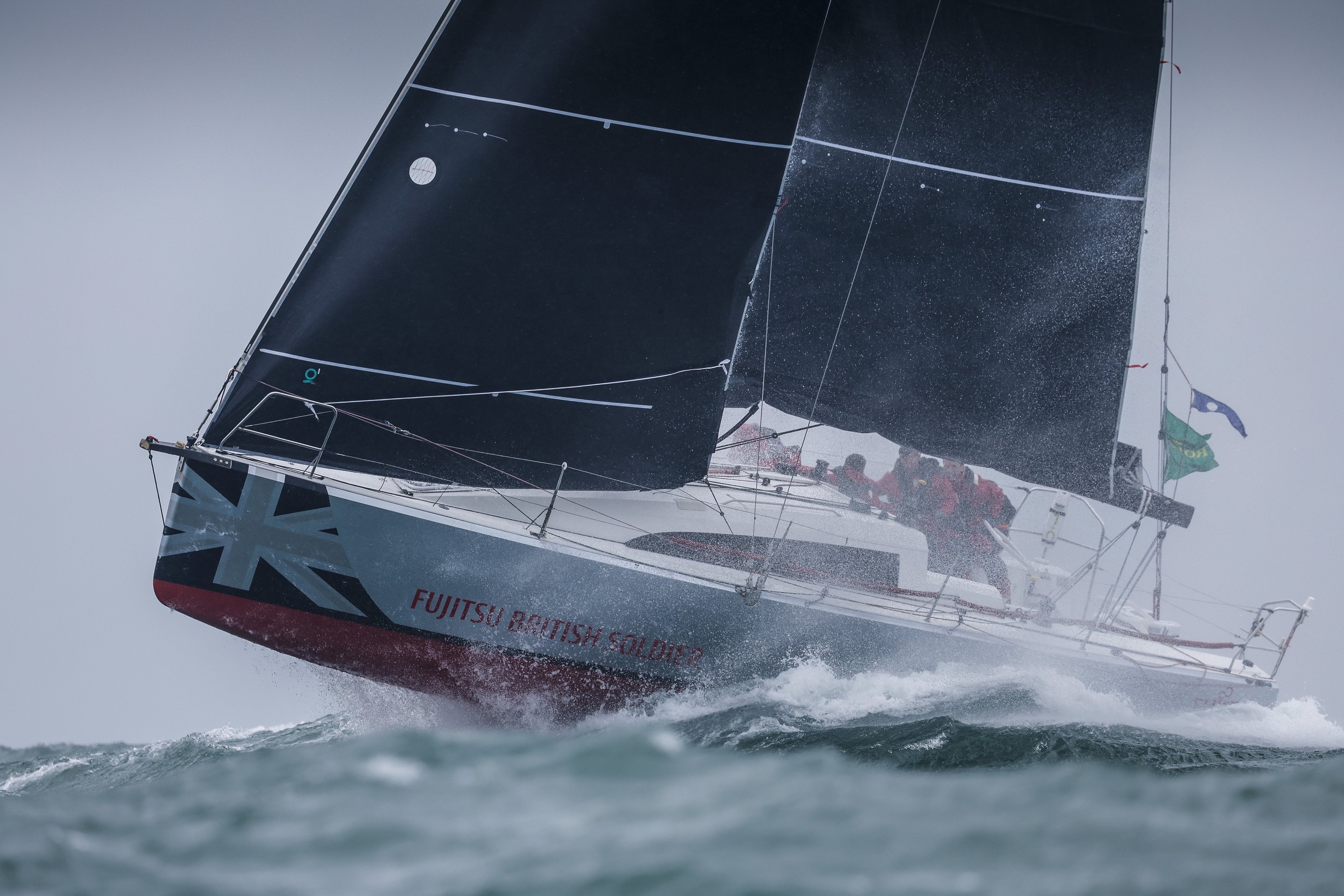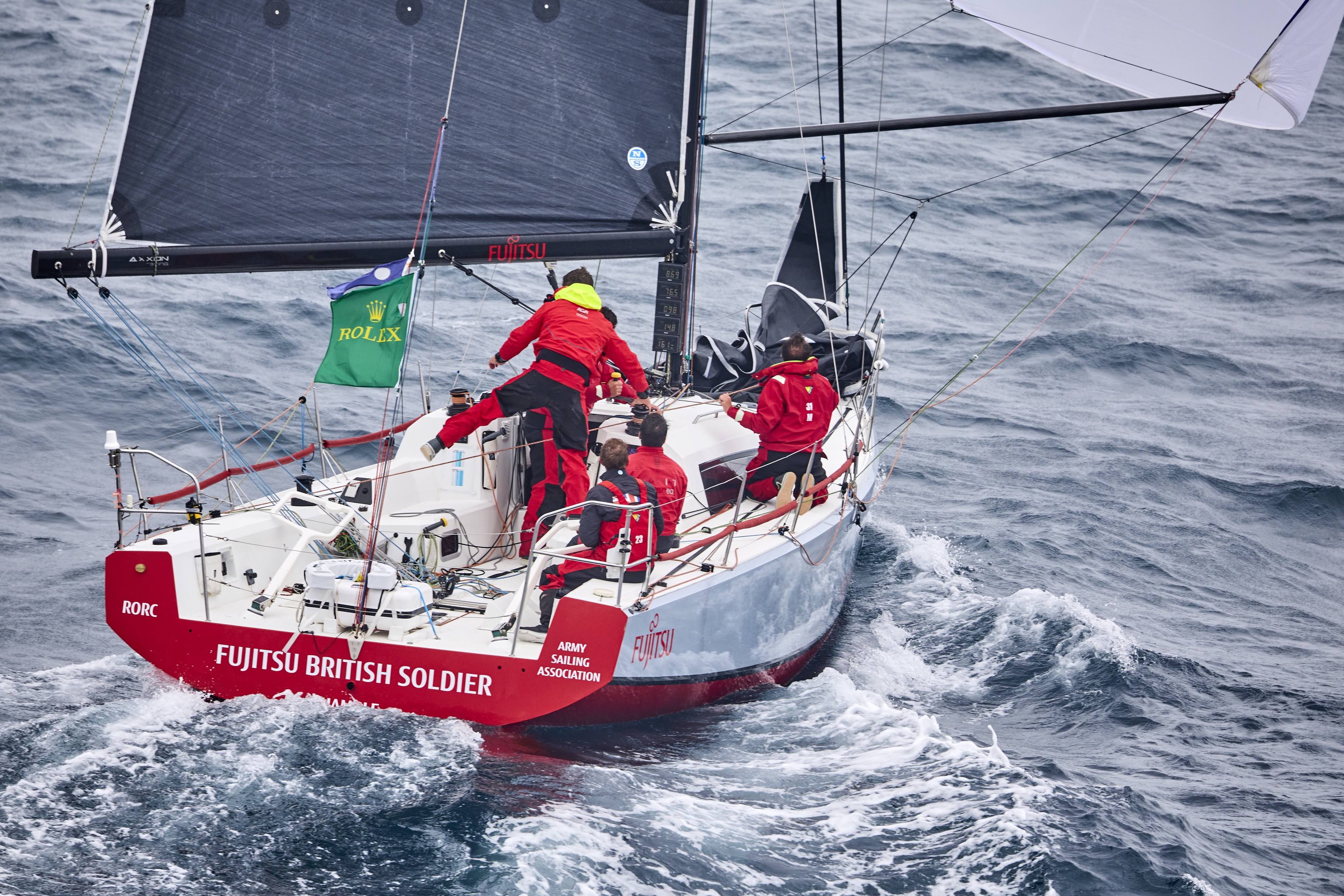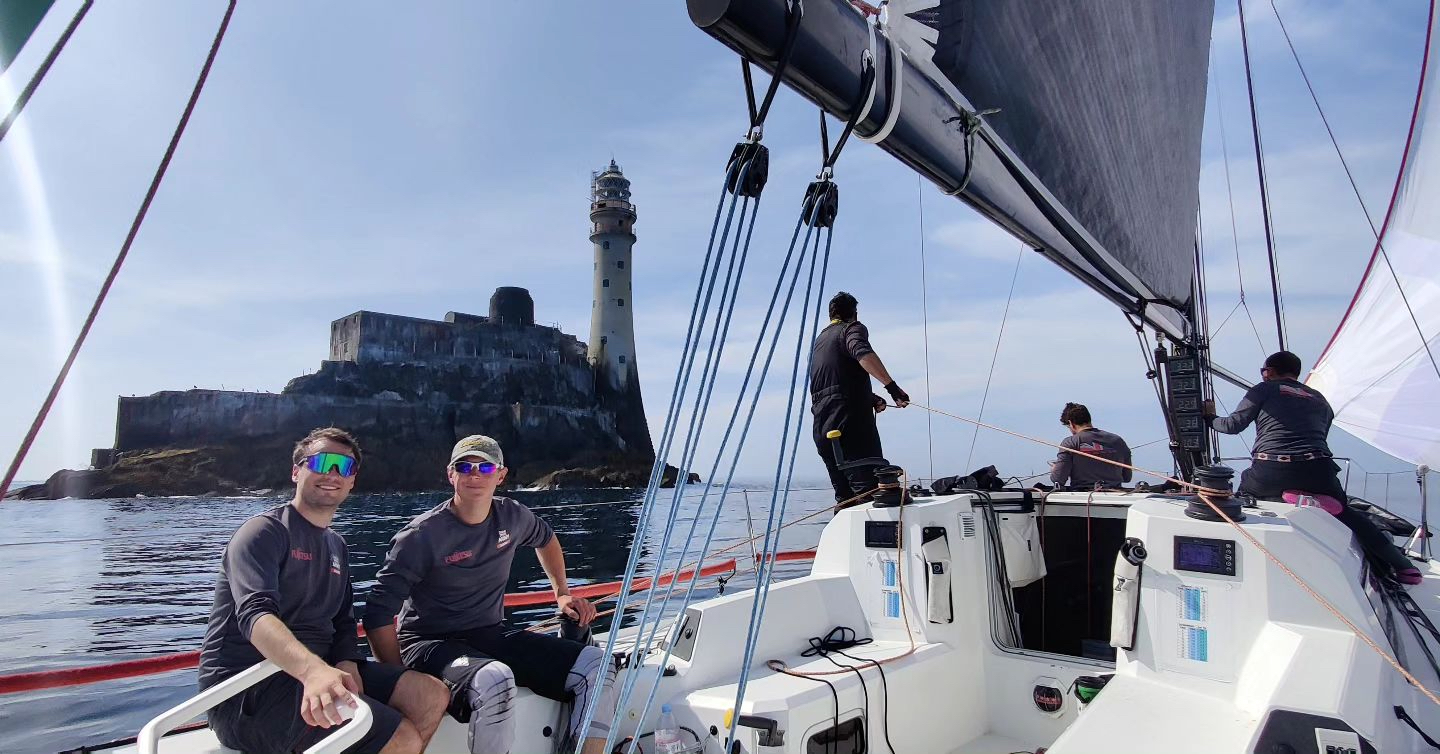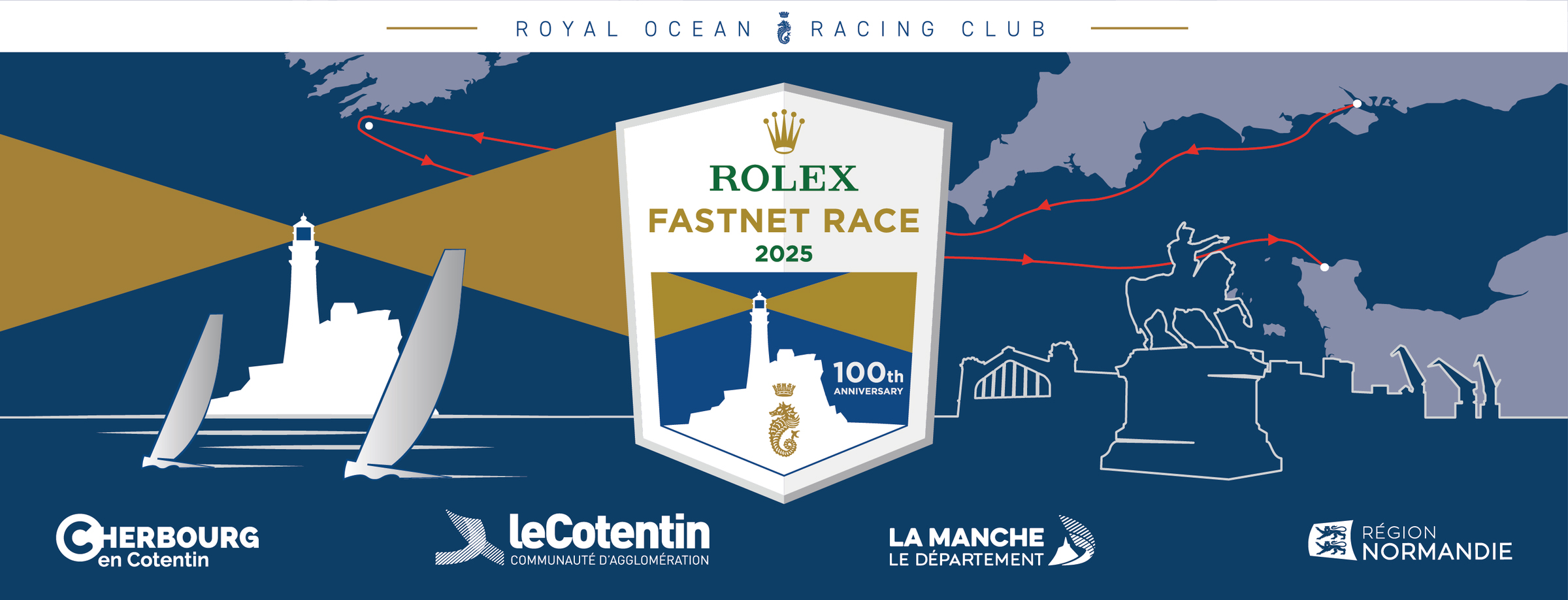

It started out well for Major Henry Foster and his crew of fellow troops on board the Sun Fast 3600 Fujitsu British Soldier. “We were looking forward to the start of the race. The boat goes upwind like a rocket in big breeze and we’re trained to keep on going when we’re wet, cold and miserable, it’s where the Army background can really pay off. We knew with that with a big of grit and determination we could make gains over the two-handers in IRC Two in the first 48 hours.”
So it proved, with Fujitsu British Soldier taking the lead in the 98-boat IRC Two class in the early days. Even when the navigation computer got flooded and ceased to function, the team was still making good progress towards the Fastnet Rock. “Then it got light and that’s when we were struggling against the lighter crews in the two-handers and the boats with their modern scow designs.”
The downwind conditions from the Fastnet lighthouse back to Cherbourg played to the strengths of the doublehanders and Fujitsu British Soldier tumbled to 18th overall. The team narrowly missed out on winning the subdivision IRC Two A to Black Sheep, a Sun Fast 3600 campaigned by Jake Carter and Trevor Middleton. “It’s disappointing we didn’t do better in the end,” admitted Foster, “but it was a good race and we’re delighted with our performance in the first 48 hours.
“At least we have won the interservices prizes, which are always our main focus, the Culdrose Trophy and the Inter-Regimental Trophy. There’s some brilliant history behind these trophies and there’s quite fierce competition between the Army, the Navy and the RAF. The Royal Engineers on Trojan [J/109 skippered by Andy Motion] are still out there, still pushing, but it’s unfortunate that the Navy with its new boat suffered a dismasting early on in the race.”
 Fujitsu British Soldier enjoyed a blistering initial run but en route to Cherbourg from the Fastnet Rock the conditions didn't play to their strengths and they finished in 18th place in IRC Two © ROLEX/Carlo Borlenghi
Fujitsu British Soldier enjoyed a blistering initial run but en route to Cherbourg from the Fastnet Rock the conditions didn't play to their strengths and they finished in 18th place in IRC Two © ROLEX/Carlo Borlenghi
Foster admits that even he was feeling ragged by the end of the race.
“A few hours after finishing I was hating this race, I didn’t think I was coming back, but a day later after a couple of beers and a good night’s sleep I’m starting to thinking about 2025 and how we’re going to do it better. It was coming through that third weather front, more 30 knot gusts, blasting down the Channel in huge waves, struggling to see any tankers because it’s pitch black. We hit 22 knots on one big surf, sailing under flying jib and at that point I was a little bit over the Fastnet. I just wanted to get everyone safely to Cherbourg and get showered and warm. But of course, we’ll be back.”
While Foster would love to do better in the next Rolex Fastnet Race, it could be harder than ever to make the time to make the necessary improvements to crew work and equipment.
“The UK is about to take the lead in NATO,” said Foster, “and with everything going on [in Ukraine and eastern Europe], that’s quite a serious responsibility.” Inevitably this is going to mean more time focused on doing the job and less on board the Sun Fast 3600.
“We’re very lucky to be able to do what we do, and it’s very much thanks to Fujitsu’s support that we’re able to do the sailing and racing that we do. No taxpayer’s money is spent on the campaign, we rely on Fujitsu to help us make the programme work. And I’m a strong believer that sport is great training and very relevant for the skills we need to build in the services.”
It’s also why the Army will always compete on a fully-crewed basis.
“We will never go down the two-handed route,” said Foster. “I think what’s going on in two-handed racing is brilliant, and we have really good close competition with them, but we always try to race with seven on board because we want to give as many people as possible the experience of offshore racing and competing in a Fastnet.”
 Like the majority of the IRC fleet, Fujitsu British Soldier had ample opportunity to see the Fastnet Rock as they drifted around it
Like the majority of the IRC fleet, Fujitsu British Soldier had ample opportunity to see the Fastnet Rock as they drifted around it
Foster is already looking back with fondness at some of the many memorable moments from a gruelling week. “There are some brilliant stories that will remain long after the pain and the misery have gone; like one of our crew sitting rigidly to attention on the rail, being sick over the rest of the crew and everyone just holding firm and keeping going.
"The thing about the Army is, you learn that as conditions degrade you have to get better. You’re trained to see a degrading of conditions as an opportunity, not a threat. Because when things get really tough, if you can outperform your adversaries in those conditions, that's when you win the fight. That’s when battles are won.”
Foster makes no secret of his love for offshore racing, although he also passionately believes it is directly relevant to his day job.
“It’s why we do competitive sport because it's such good training, and both are mutually beneficial to each other. In the Army we talk a lot about moral courage and the ability to do the right thing and the difficult thing when no one’s watching. Because what we’re seeing in Ukraine for example is proving that if you just get your doss bag out and get your head down and get some sleep, but you haven’t dug a shell hole, those things cost people their lives in the real world. What we do and the choices we make are the same in a sporting context. As the conditions degrade, and people around us are perhaps taking a foot off the accelerator, then if we can just grizz it out a bit harder, that’s the opportunity to make a gain.”
By Andy Rice
